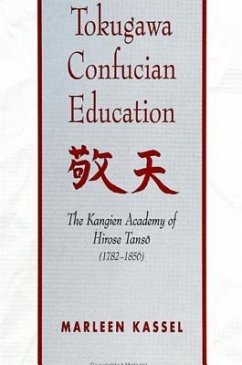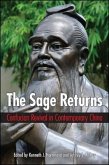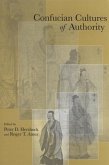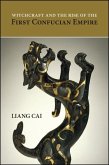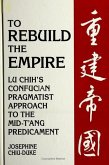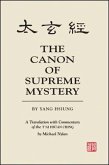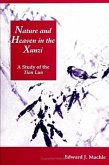This book presents the world of Hirose Tanso, a late Tokugawa period (1603-1868) educator whose goal was to train men of talent in practical learning for the benefit of the country. Tanso founded a private academy called Kangien in Hita City of present-day Oita prefecture. Some 3,000 young men from 64 of the then total 68 provinces of Japan were educated at Kangien during Tanso's 50-year career as educator and administrator. Firm in his conviction that the problems he and others faced in contemporary society would be solved by setting right the moral priorities of the people, Tanso established an educational program at Kangien based on the Neo-Confucian philosophical construct of reverence for Heaven. Tanso's educational program taught students reverence for Heaven by engaging in moral self-cultivation in the practice of actions of day-to-day behavior. Students were required to adhere to stringent school regulations governing every aspect of daily life at the school and to engage in a systematic study of a Confucian educational curriculum with concomitant, rigorous testing exercises. Tanso believed that an educational program supported by the twin pillars of regulations and curriculum would, by its very nature, accomplish social reform. The microcosm of society Tanso created at Kangien provides a window through which the reader can glimpse the confluence of three important components of late Tokugawa society, institutional development; philosophical trends; and social structure. The values that Tanso stressed, study; hard work; frugality; and promotion based on merit, were, in many ways, responsible for the relative ease with which Japan emerged from hundreds of years of self-imposed isolation and became a powerful modern nation.

